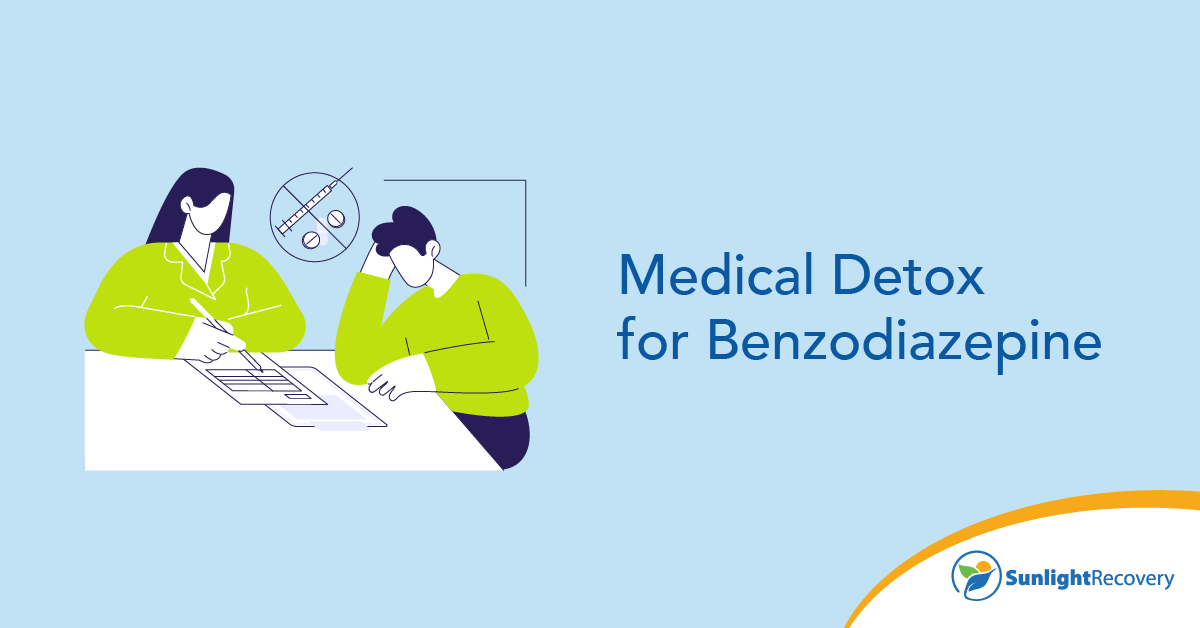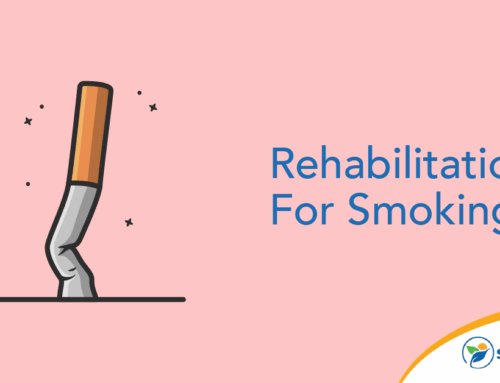Benzodiazepines are depressant drugs often prescribed to reduce anxiety, control seizures, relax muscles and relieve pain. Commonly used benzos go by the brand names Xanax, Valium, Klonopin and Halcion. Highly addictive, benzos change the way the brain releases dopamine, the chemical messenger that plays an important role in several body functions, such as movement, attention and mood regulation. Individuals addicted to these drugs go through a period of benzo detox that can be severe and even life-threatening, which makes it essential to seek a doctor’s help if you plan on quitting.
The following article discusses medical detox from benzos, including what to expect, how to get through the withdrawal symptoms safely and why you should continue your treatment even after detox.
Why Medical Detox Is Crucial for Benzodiazepine Use
Each year, more than 5 million benzo users report abusing the drug. These medications act like tranquilizers; they have a calming and relaxing effect on the body. When taken in high volumes, these drugs may also cause:
- Blurred vision
- Mood changes
- Drowsiness
- Weakness
- Poor judgment
- Memory loss
- Confusion
- Depression
Addiction can happen very fast. Typically, a doctor prescribes the medication and you start taking it as prescribed. After a short time, you may find you need more of the medication to achieve the same effect or may start to rely on the medication to relax. Your doctor may increase your prescription, or you may decide to self-medicate and increase your dose on your own. Once you achieve this level of physical dependence, it can be extremely difficult to stop taking the medication without assistance due to the withdrawal symptoms, which include:
- Rapid heart rate
- Hallucinations
- Increased anxiety
- Insomnia
- Headache
- Panic attacks
- Sweating
- Tremors
- Seizures
- Death
Because benzo withdrawal symptoms can be so severe, medical detox is recommended. Medical detox is typically completed in an inpatient environment where you receive supervision, assistance and emotional support around the clock.
What to Expect During the Benzo Detox Process
The time it takes to complete the benzodiazepine detox process may vary depending on how long you use the drugs and the level of addiction. The complete detox process has two stages. The first stage involves the initial physical withdrawal symptoms, which can take from a few days to a couple of weeks. The second stage includes psychological symptoms that can last several months after your last dose. When you enter a benzo detox program, prepare for the following experience:
- Medical assessment. When you enter any medical detox or recovery program, you receive a health assessment, which is performed by a medical professional who assesses the severity of your addiction and your overall health. You receive a detox plan customized to your situation.
- Constant supervision. During your benzo detox, you’re monitored closely. If you experience any severe detox symptoms, you may receive alternative medications, such as buspirone, beta-blockers or anticonvulsants, to help you cope.
- Tapering. Benzo detox requires a tapering method that gradually reduces the amount of the drug you take. Tapering off the drug can reduce your symptoms and minimize any safety issues.
- Counseling. Therapy and counseling sessions help you develop new coping methods. These coping methods can also help you with long-term recovery.
- Long-term inpatient or outpatient treatment. Once you complete the benzo detox, you move into a regular treatment program, which can be completed through inpatient or outpatient programs.
Managing Withdrawal Symptoms Safely
For someone who’s been taking benzos daily for several weeks, months or even years, stopping the drug immediately can have some potentially life-threatening side effects. To manage withdrawal symptoms safely, the taper schedule should be customized to the specific individual. To reduce the negative effects, tapering can be an extremely slow process.
- Changing the dosage. The rate of taper from benzos depends on the individual. Typically, your physician reduces your daily intake by 5% to 10% each month until you’re no longer on the medication. For someone taking the maximum amount, completing a safe taper may take several months.
- Diet. During any recovery process, eating a well-balanced diet and staying hydrated are important. Proper nutrition helps your body repair the damage from the drugs.
- Mental support. Talk therapy can help you manage your emotions and feelings while you’re going through detox.
- Medical supervision. Because detox can be dangerous, it’s important to receive medical supervision when tapering. Trained staff can adjust your treatment if necessary and provide immediate care when warranted.
The Importance of Continued Treatment Post-Detox
Detox is only the first step of a successful drug treatment process. With proper treatment, approximately 1 in 10 adults in the United States fully recover from addiction. This number tends to be smaller when an individual tries to complete treatment alone. Inpatient and outpatient programs can help reduce the chances of relapse and keep you on the path to recovery. Without post-detox treatment, the risk of relapse remains high. Reasons to continue your therapy after benzo detox include:
- Addressing the cause of dependence. Treatments such as cognitive behavioral therapy can help you identify the underlying cause of addiction. With counseling and therapy, you explore your triggers and learn coping mechanisms.
- Preventing relapses. Relapse rates for substance abuse disorders are between 40% and 60%. Some people may be at greater risk of relapse than others. High levels of stress, lack of support, poor physical and mental health and lack of adequate treatment can increase the risk of relapse.
- Building a network of support. It always helps to have someone to talk to and someone who believes in you throughout the recovery process. Groups such as Narcotics Anonymous are ideal for those without close friendships and family nearby.
- Reducing the health effects of addiction. Abusing benzos can cause widespread damage to your body and system, leaving you at risk for a variety of health problems and psychological issues. Fortunately, even the chemical changes in the brain caused by benzo addiction can be reversed over time once you stop taking the drug. It’s never too late to try to recover from the addiction.
Getting Help for a Benzodiazepine Addiction
Getting the help you need for benzodiazepine addiction is only a phone call away. If you or someone you love is looking for a benzo rehab program, contact Sunlight Recovery to speak to one of our counselors. We can help you explore your options to get started on the path to recovery.







